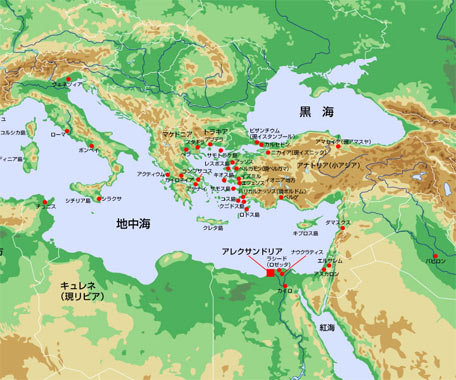Learning a foreign language is good for reasons beyond the obvious benefit of being able to communicate and share ideas with people from other parts of the world. It can also give you unexpected insights, including the etymology of words you might miss otherwise. The name China uses for itself (中国) literally means the Kingdom at the Center of the World, which struck me as very ethnocentric when I heard it for the first time. And yet, the name of the Mediterranean Sea means the exact same thing, the Sea at the Center of the Earth (地中海), something I never would have picked up on if I hadn’t seen the name in kanji characters. Similarly, I’d never consciously realized the days of the week were named after the ancient gods, although it’s very clear when you write the Japanese days of the week in kanji, which correspond to Moon Day 月曜日, Mars Day 火曜日, Mercury Day 水曜日, Jupiter Day 木曜日, Venus Day 金曜日, etc. (The names in English have been filtered through the Germanic/Norse pantheon, for example Thursday comes from Thor’s Day, although the system is the same.) Sometimes words can get lost in translation when they move from one language to another. The name for the Statue of Liberty in Japanese is jiyu no megami or Goddess of Freedom, and the official word for the Olympic Torch translates as the Holy Fire of the Five Rings.

The ancient Romans and Chinese had serious humility deficents.















